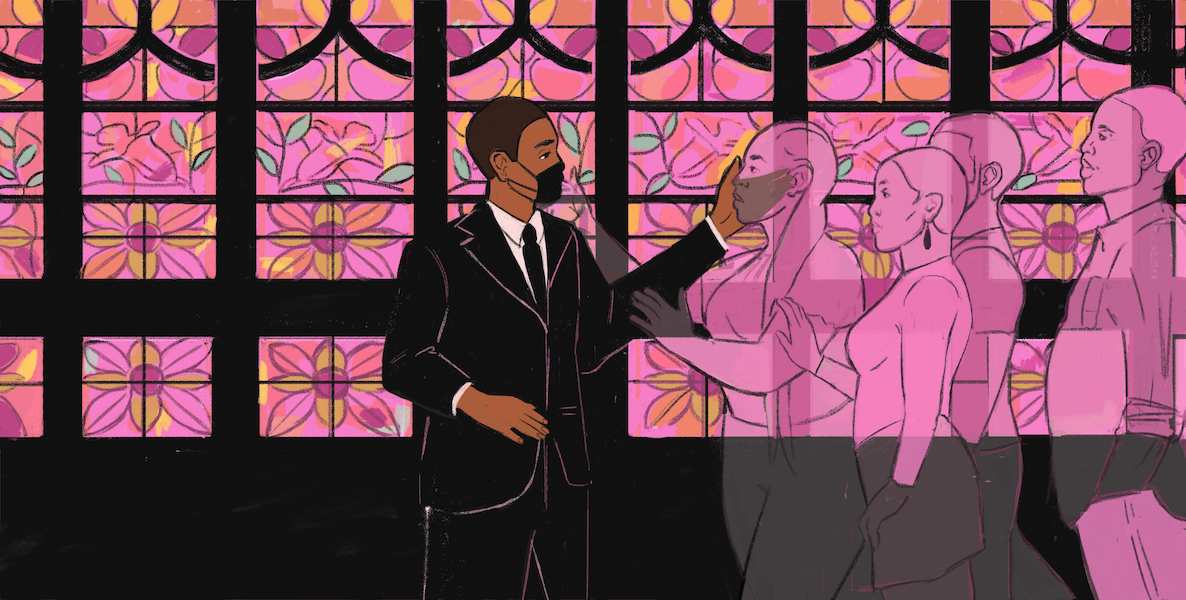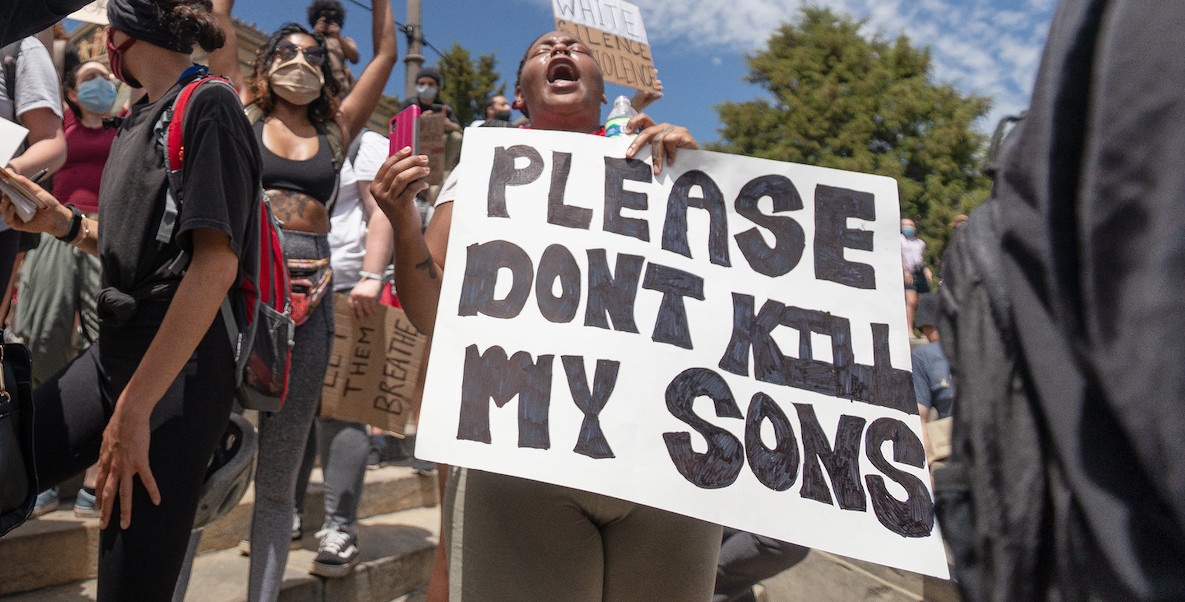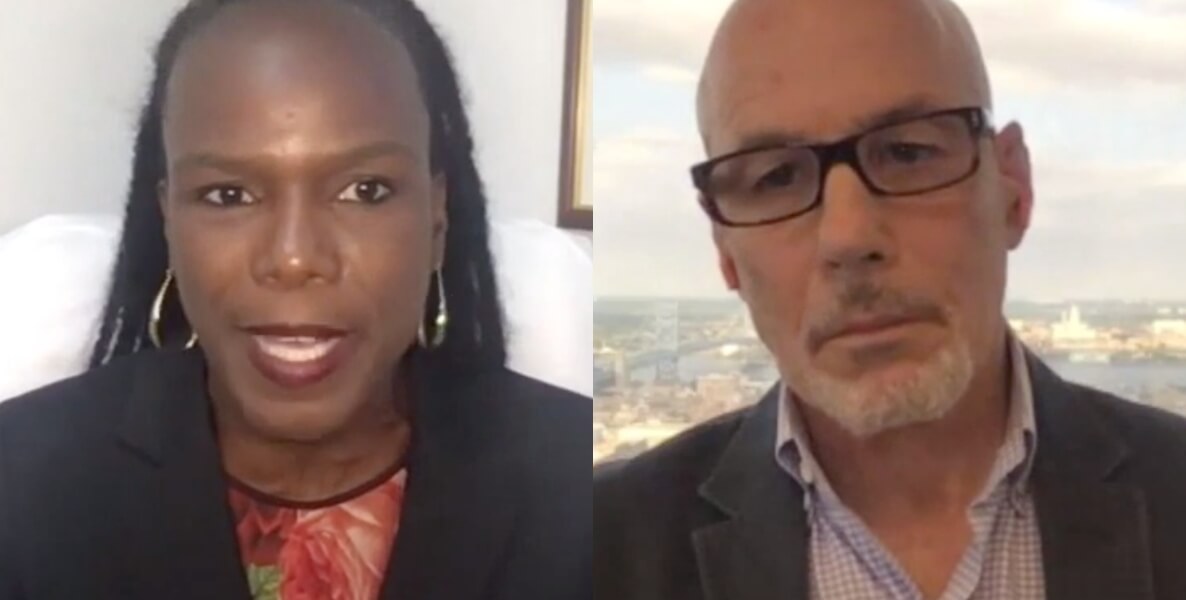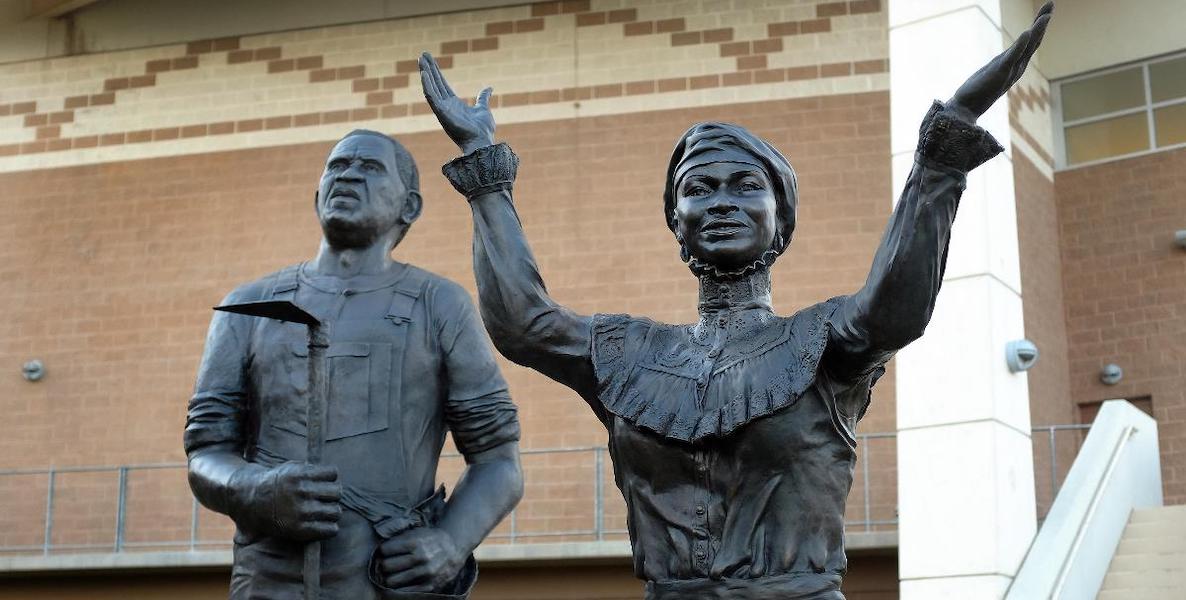Justice delayed is justice denied; or so they say.
Juneteenth, a day that should soon be a national holiday, commemorates the unofficial but actual end of slavery in these United States. The official end of slavery in the U.S. was Lincoln’s “Emancipation Proclamation,” an executive order issued on September 22, 1862, which did not take effect until January of 1863. This was just a legislative beginning of the end. Even the “Emancipation Proclamation,” better referred to as Proclamation 95, had a built-in delay.
Lincoln’s Proclamation 95 was not exactly emancipatory either: It legally changed the status of nearly four million enslaved Africans in America, but in reality, the enslaved remained captive under Confederate control. The Confederacy was desperate to defy the Union and maintain a way of life predicated on Black subjugation, unpaid labor, torture, rape and murder. It should make us all wonder why and how mid-20th century confederate monuments are just now being brought down in town squares across America.
In 1863, tens of thousands of enslaved Black people were immediately impacted — liberated — in the Confederate states that were under Union control. Our nation’s Civil War was complex and brutal, with over 600,000 fatalities. And slavery could not end until the Civil War did.
In order to ensure that abolition was complete, President Lincoln made the legislative push for the passage of the Thirteenth Amendment which ended legal slavery in the United States on December 6, 1865. Just another delay in the racial justice delayed to Black people in America.
However, as Michelle Alexander, Ava DuVernay and others have pointed out in film and literature, the Thirteenth Amendment’s “dirty little secret” was that slavery was still legal for those who were incarcerated. This should make us all wonder why and how in the 21st century, America incarcerates more of its citizens than any other nation on the planet.
Juneteenth is the oldest national commemoration of the end of slavery. It marks the day — June 19, 1865 — when Union soldiers brought the good news to enslaved Black people in Galveston, Texas, that the war was over and that Black people were free.
Juneteenth represents the enduring legacy of Black folks’ fight for liberation. And yet, Juneteenth is also the epitome of American denial. It reflects all of the ways in which racial justice is systemically delayed for Black folks.
That it took six months and 13 days for this news to reach all of America is a telling microcosm of Black life in the United States. How brutal was the Peculiar Institution for those who labored in it for six months and 13 days after the ratification of the Thirteenth Amendment? How many died from the brutality of chattel slavery in those six months and 13 days? How many Black families were crushed and decimated during that six-month and 13-day delay? How tragic was it for those who were so close to the finish line of freedom?
Juneteenth represents the enduring legacy of Black folks’ fight for liberation. And yet, Juneteenth is also the epitome of American denial. It reflects all of the ways in which racial justice is systemically delayed for Black folks.
This week, Mayor Jim Kenney announced that Juneteenth is now designated as an official holiday for the city of Philadelphia. According to Mayor Kenney: “Now more than ever it’s critically important to acknowledge America’s original sin of slavery—something we as a nation have never atoned for. The only way to dismantle the institutional racism and inequalities that continue to disenfranchise Black Philadelphians is to look critically at how we got here, and make much-needed changes to the governmental systems that allow inequality to persist.”
Given Philadelphia’s place in American history—this nation’s first capital; the home of the Liberty Bell—it is only befitting that this city’s leaders honor the liberation legacy of Philadelphia in a way that leads the nation on issues of racial justice and racial equity.
In 1780, the state of Pennsylvania passed the “Gradual Abolition Act,” the first legislation in the United States of America that was passed to emancipate enslaved Black people. But once again, the delay was built into the process of liberation. This act did not immediately free any of the enslaved in the state of Pennsylvania or the city of Philadelphia.
In the late 18th century, 15 percent of Philadelphia households enslaved Black people. The Gradual Abolition Act of 1780 only afforded liberation to the children of those who were enslaved and even then, those children “owed” 28 years of enslaved labor to their mother’s “masters” before they were “free.”
As revolutionary as the Gradual Abolition Act might have seemed in 1780, it delayed liberation for a generation and a lifetime. Similar to Proclamation 95, the Gradual Abolition Act embodied the delay of justice even for the children it sought to emancipate, but it also provided a glimpse of the marathons for freedom and liberation that lay ahead for Black people in America.
Historically, racial justice for Black America has been on/in constant delay. Juneteenth is our national day for critically commemorating the facts of this fight for freedom. But the fight for liberation is enduring and exhaustive.
It is a series of marathons that requires a relayed approach wherein the batons for freedom are passed from one generation to the next; from one leader to the next; one teacher to the next; one organizer to the next, one activist to the next; one liberator to the next. Our liberation has been delayed, but our liberation relay will run forever.
Juneteenth 2020 marks a critical juncture in our liberation relay. Given the racial health disparities on painful display in this moment of Covid-19; and given the unceasing brutal murders of Black women and men by the state, Juneteenth 2020 will be more widely and publicly celebrated than it ever has been in its 155-year history.
This is a good thing. Happy Juneteenth to ALL. Let Black liberation ring everywhere and know that though this relay has been hard and long our legs for liberation remain strong. And we run ready to pass this baton onto the next series of freedom fighters.
James Peterson is a writer, educator and consultant, and is host of Tonight on WURD, a nightly news program on WURD, Philadelphia’s only independently Black-owned radio network. He authors The Citizen’s Color of Coronavirus series, which is supported by the Pamela and Ajay Raju Foundation.
![]()
RELATED
Photo of Juneteenth monument in Austin, Texas, courtesy of austintexas.gov.







